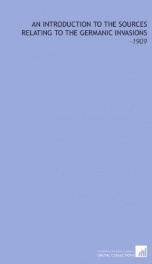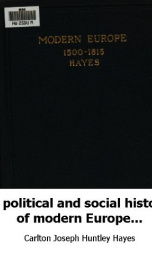a brief history of the great war

Purchase of this book includes free trial access to www.million-books.com where you can read more than a million books for free. This is an OCR edition with typos. Excerpt from book: cisely what was there discussed and determined upon we do not know. There is little doubt, however, that the Austro-Hun- garian government received carte blanche to use the archduke's murder as the pretext for dealing drastically with the one obstreperous Balkan state which had been thwarting the full realization of Teutonic political and economic aims in southeastern Europe. As recently as August, 1913, Austria had formally invited Italy to cooperate with her in crushing Serbia. At that time no good excuse existed for such a use of force and Italy had declined the invitation, but now the occasion was propitious and the ruling classes in Germany were favorably disposed.1 Perhaps the German dignitaries, mindful of the success of their former military threats in 1908-1909 and in 1912-1913, entertained the idea that if Germany were now again to stand "in shining armor" beside her ally, Russia would once more back down and leave Serbia to the tender mercy of Austria-Hungary. It would be Germany's role by threats and intimidation to keep the Balkan conflict "localized." Assuredly the German dignitaries must have foreseen the possibility of Russia's not backing down and of the resulting precipitation of a general and truly Great War. But such a war, precipitated by Austria's act and Germany's threat, might be the heralded "preventive war," through which Germany would break the "iron ring" of her jealous and greedy neighbors and assume in the wide world a position to which her might and her Kultur destined her. It was a peculiarly opportune moment for provoking the "preventive war," for at that very moment each one of the Entente Powers was embarrassed by domestic difficulties Russia by a serious and violent strike of workingmen in Petrograd, France by an alarming popular opposition to...
Info about the book
Author:
Series:
Unknown
ISBN:
0897335473
Rating:
2.5/5 (2)Your rating:
0/5
Languge:
English
Users who have this book
Users who want this book
What readers are saying
What do you think? Write your own comment on this book!
write a commentif you like a brief history of the great war try:
Do you want to exchange books? It’s EASY!
Get registered and find other users who want to give their favourite books to good hands!




